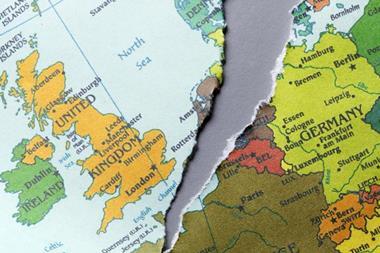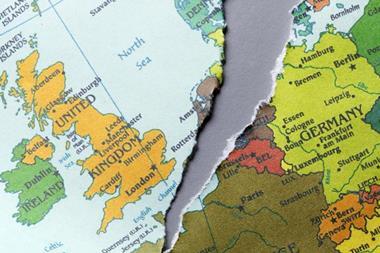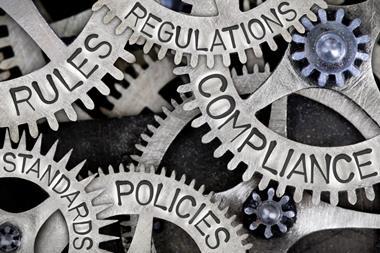However Brexit plays out, the impact on international trade is likely to be great. As forecasted border delays threaten to sink UK manufacturing, supply chain managers are acting now.
For those against the UK’s decision to leave the EU, one of the biggest factors in their position is the threat Brexit presents to international trade. At the moment, borders within the EU offer free movement of people and goods, and those goods are traded tariff-free in a frictionless environment aimed at making trade easier and profitable for everyone.
When the UK leaves the EU, all that stops, and with it customs checks at borders become the norm. For supply chain managers, the risks are huge.
A survey of 1,310 EU and UK-based supply chain managers conducted by the Chartered Institute of Procurement and Supply (CIPS) found that 10% of firms believe their businesses would likely go bankrupt if goods were delayed at the border by 10–30 minutes. This increased to 14% for delays of one to three hours, and 15% for delays of 12–24 hours.
CIPS economist John Glen says even small delays at the border could be devastating. “The UK economy could fall off a cliff on Brexit Day if goods are delayed by just minutes at the border. Businesses have become used to operating efficiently, with lean, frictionless supply chains, and quick customs clearance.”
And Glen is right to be worried. With the deadline for the UK leaving the EU looming large, there is still no deal in place as to how these customs borders, and other issues, will be dealt with after Brexit Day on 29 March.
In the CIPS survey, the majority of supply chain managers said they needed at least a year to prepare their business once a deal has been agreed. This is time they might not get, even with the 21-month transition period negotiated by prime minister Theresa May.
JUST-IN-TIME IN JEOPARDY
To help mitigate these risks, Clyde & Co procurement law specialist David Hansom says businesses need to be evaluating their supply chain and determining whether their existing contracts are still fit for purpose.
“The key thing is to look at supplier contracts, and this will typically involve a long list of different contracts that work together to keep the business going,” he says. “It is about finding those high-level business-critical contracts and checking whether they offer protection for any type of Brexit.
We have a lot of clients who are looking at variations on those contracts to take into account exchange rate fluctuations that may affect the cost of delivery of goods, and the potential inability for suppliers to deliver components.”
Hansom says this level of preparedness is particularly important given the nature of the UK’s manufacturing industry. “The UK manufacturing industry is now very much component-based, instead of building the whole good, so the just-in-time supply chain, and the insurance requirements and delivery deadlines that go with that, need to be looked into and stress-tested,” he says. “Some companies are already stockpiling parts or diversifying their supply chain so they can source from elsewhere if needed.”
For Russell Group chief executive Suki Basi, this threat to the just-in-time supply chain is one of the biggest risks. “In today’s connected world, corporates’ supply chains are spread across different countries and this approach has led many manufacturing organisations to perfect just-in-time supply chain management methods.”
“Brexit threatens to undermine all of this. The imposition of tariffs on British goods, along with a hard border, would undermine this just-in-time production strategy. Without seamless borders, key components needed from the supply chain would not reach the production process. This would not only create delays in the production process, but lead to other risks such as financial loss as share price plummets and reputational impact, as the company fails to deliver its orders.”
TAKING DRASTIC MEASURES
The CIPS survey found 24% of the supply chain managers were planning to stockpile goods, while 4% already are. A fifth are introducing more flexible contracts, and the same percentage are already looking for alternative suppliers outside the EU.
Multinational logistics company Katoen Natie is one EU-based business that is already putting such measures in place for suppliers that are exposed to the UK market.
Chief risk officer Carl Leeman says: “We prepared a checklist that we sent to our suppliers to fill out, so we are aware if there are any important parts or goods that we currently buy in the UK that could lead to issues in the future, post-Brexit. If some of the parts for the products that we sell are only coming from a UK supplier, then we are asking that supplier to see if they can source the goods from elsewhere. If they can’t, then we are looking at what the impact could be on the price of the goods and the time it takes for them to be delivered.”
START… YESTERDAY
The truth is that 48% of respondents said they could not begin to make any preparations as future trade arrangements were still too unclear, and half of companies said they would struggle to find suppliers and skills in the UK after Brexit.
To help deal with this lack of clarity surrounding a post-Brexit trade deal, Airmic deputy chief executive and technical director Julia Graham says businesses should be making use of scenario-testing to prepare for a wide range of difference possible scenarios. And that they need to be doing it now.
“You’d be a fool not to run scenario testing on a wide range of different possible outcomes, ranging between deal and no-deal,” she says. “You have to think of the extremes – if a deal is done and things are good, or that there is no deal and things are less good, as well as the variations in between. You then run your scenarios on those variations, and that is just what businesses have been doing for some time. If you are just thinking to plan now, you are too late – some of our members started doing this the month the vote was cast.”
Ultimately, Katoen Natie’s Leeman says businesses just need to be ready to adapt to whatever post-Brexit landscape they are faced with. “You have to be able to adapt quickly to new and changing situations, and it is the same with Brexit. You have to be vigilant and quick to adapt to the new environment – after all, that is the new normal for businesses now.”




















No comments yet